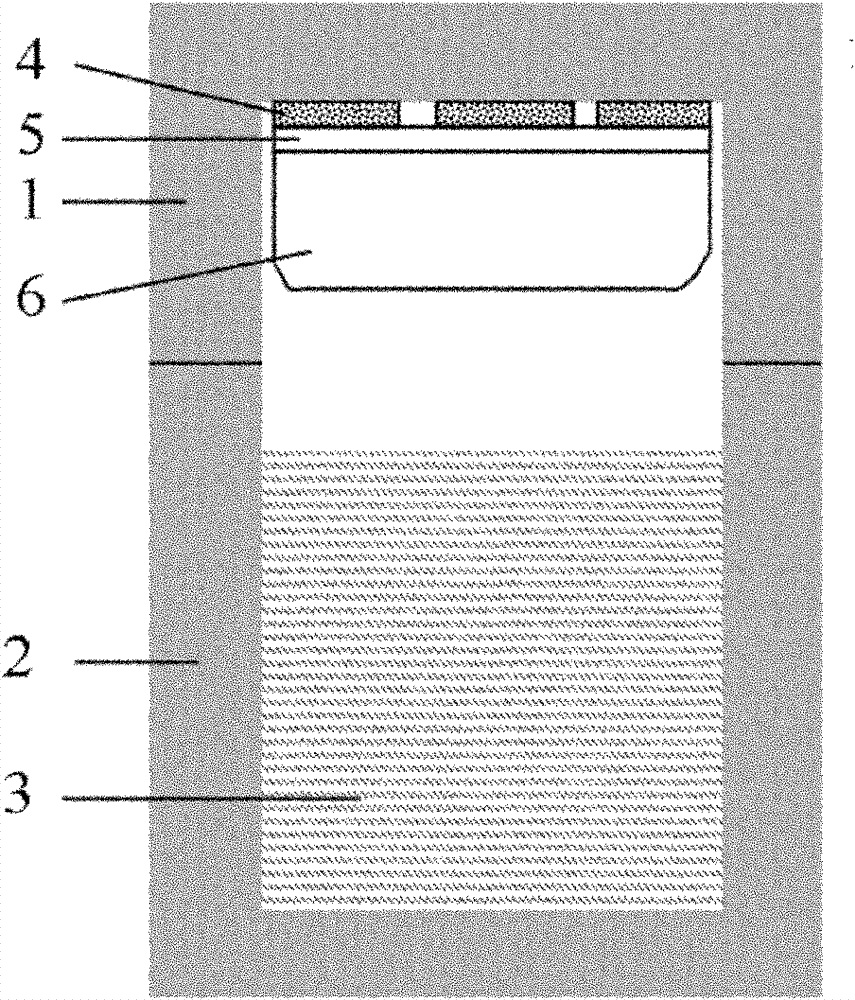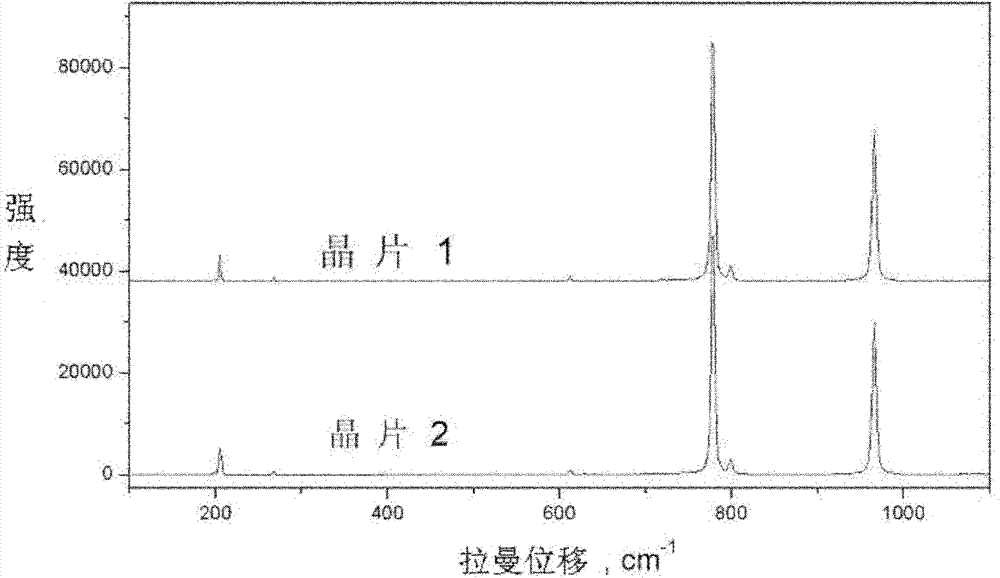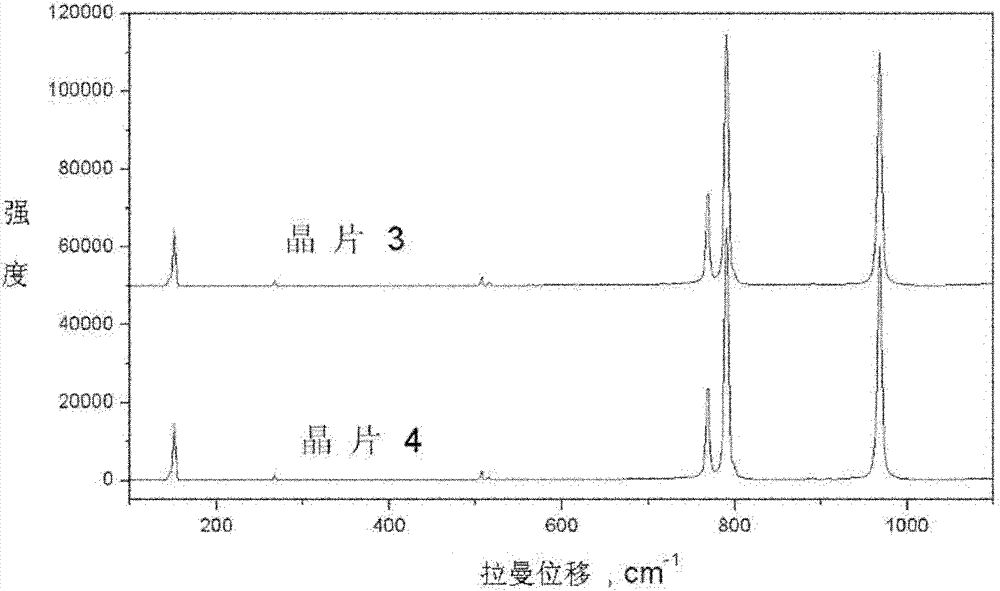Semi-insulating silicon carbide mono-crystal
A silicon carbide single crystal, semi-insulating technology, applied in the direction of single crystal growth, single crystal growth, crystal growth, etc., can solve the problems of reducing the crystal electron mobility, affecting the crystal quality, affecting the performance of microwave devices, etc., to avoid the process of Complexity and resistivity instability, resistivity stability, effects of high crystalline quality
- Summary
- Abstract
- Description
- Claims
- Application Information
AI Technical Summary
Problems solved by technology
Method used
Image
Examples
Embodiment 1
[0026] Crystal 1 is intentionally doped with a deep-level dopant (taking vanadium as an example), and its specific preparation method is as follows: add 200 mg of vanadium carbide powder (purity 99.999%) to 800 g of silicon carbide powder (purity 99.999%), Mix well and evenly with a ball mill and put it into the graphite crucible 2 as the raw material 3, cover the crucible cover 1 with the 4H-SiC seed crystal 5 bonded, and put it into the crystal growth furnace. The growth furnace is filled with argon gas, and the pressure is controlled at about 1500Pa. The temperature of the seed crystal is kept between 2000-2150°C, the temperature of the raw material is kept between 2250-2400°C, and the temperature gradient between the raw material and the seed crystal is kept between 150-300°C. The crystal growth rate is about 0.8 mm / h, and the growth ends after 15 hours and cooled to room temperature. As known to those of ordinary skill in the art, the introduction of point defects is obt...
Embodiment 2
[0036] This example adopts the same silicon carbide crystal preparation method as in Example 1. In this embodiment, the graphite crucible and heat preservation material are also purified, specifically, the graphite crucible and heat preservation material are heated to 2000° C. in an Ar atmosphere to allow impurities (such as aluminum and boron) to be fully volatilized. In this way, the influence of background impurities on crystal resistivity is minimized.
[0037] In this embodiment, crystal 3 selects vanadium as the deep level dopant. The specific preparation process is as follows: 250 mg of vanadium carbide powder (purity 99.999%) is added to 800 g of silicon carbide powder (purity 99.999%), fully mixed with a ball mill and then loaded into the graphite crucible 2 as raw material 3, and the lid is bonded A crucible lid 1 with a 6H-SiC seed crystal was removed and put into a crystal growth furnace. The growth furnace is filled with argon gas, and the pressure is controlled...
PUM
| Property | Measurement | Unit |
|---|---|---|
| electrical resistivity | aaaaa | aaaaa |
| electrical resistivity | aaaaa | aaaaa |
| electrical resistivity | aaaaa | aaaaa |
Abstract
Description
Claims
Application Information
 Login to View More
Login to View More - R&D
- Intellectual Property
- Life Sciences
- Materials
- Tech Scout
- Unparalleled Data Quality
- Higher Quality Content
- 60% Fewer Hallucinations
Browse by: Latest US Patents, China's latest patents, Technical Efficacy Thesaurus, Application Domain, Technology Topic, Popular Technical Reports.
© 2025 PatSnap. All rights reserved.Legal|Privacy policy|Modern Slavery Act Transparency Statement|Sitemap|About US| Contact US: help@patsnap.com



